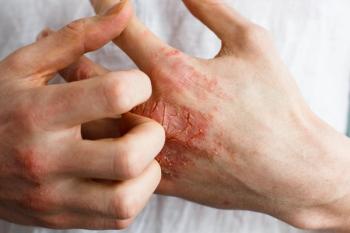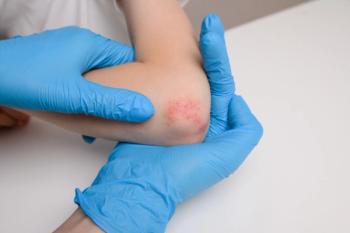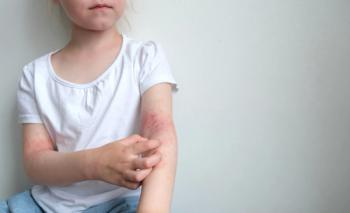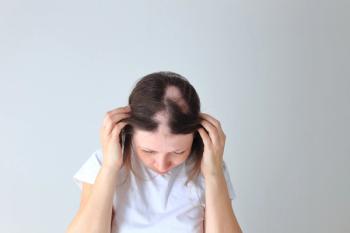
All Ages Need Education on Sunscreen
Data from one study showed younger women more likely to use sunscreen than older adults.
It is no secret the pivotal role that dermatologists play in educating their patients on preventing skin cancer, but data presented at the 2022 American College of Mohs Surgery Annual Meeting in Philadelphia serve as a good reminder that this education is important in all patients, regardless of age or gender.1
Researchers from the University of Mississippi Medical Center reported on a set of 311 patients, most of whom were male and had an average age of 64, who had been diagnosed with keratinocyte carcinomas and their awareness and attitudes about sunscreen.
About two-fifths of the surveyed patients noted that they “never or rarely” apply sunscreen when in the sun for more than 15 minutes.
“Bivariate analysis showed a statistically significant negative correlation between age and sunscreen use (r = -.174, P = .002),” the researchers noted, with women being more likely than men to using sunscreen.
A recently-published study from Frontiers in Public Health noted some important counseling techniques for patients who may be reluctant to use sunscreen or have a different perspective on sun exposure; urging patience during counseling; understanding that different people with different professions may have different attitudes about sunscreen, for instance, lifeguards who enjoy being outside and may not be as concerned about the dangers of sun exposure than a person in another profession; and encouraging physicians to counsel patients about what sunscreen protection actually is, noting that patients may not be aware of the risk of melanoma on skin normally covered by clothing or hair.2
The good news, from both that study and the data at the conference, is that dermatologists can make a difference.
“Increasing number of visits with a dermatologist or dermatologic surgeon was associated with higher use of sunscreen (r = 0.146, P = 0.011),” the University of Mississippi researchers noted in their abstract. “After controlling for relevant covariates, results of regression analysis showed that sunscreen knowledge (β = .925, P < .001) and positive attitudes towards sunscreen (β = .418, P < .001) were statistically significant predictors of sunscreen use and accounted for 20% of the variance in this health behavior.”
References
1. Pearlman R, Black W, Davis RE, et al. Sunscreen awareness, attitudes, and practices in patients with a history of keratinocyte carcinoma: A single-institution survey study. Abstract presented at 2022 American College of Mohs Surgery Annual Meeting, held May 12-15, 2022, in Philadelphia, Pennsylvania.
2. Keurentjes AJ, Kezic S, Rustemeyer T, Hulshof CTJ, van der Molen HF. Stimulating sunscreen use among outdoor construction workers: a pilot study. Front Public Health. 2022;10:857553. Published 2022 Apr 1. doi:10.3389/fpubh.2022.857553
Newsletter
Pharmacy practice is always changing. Stay ahead of the curve with the Drug Topics newsletter and get the latest drug information, industry trends, and patient care tips.























